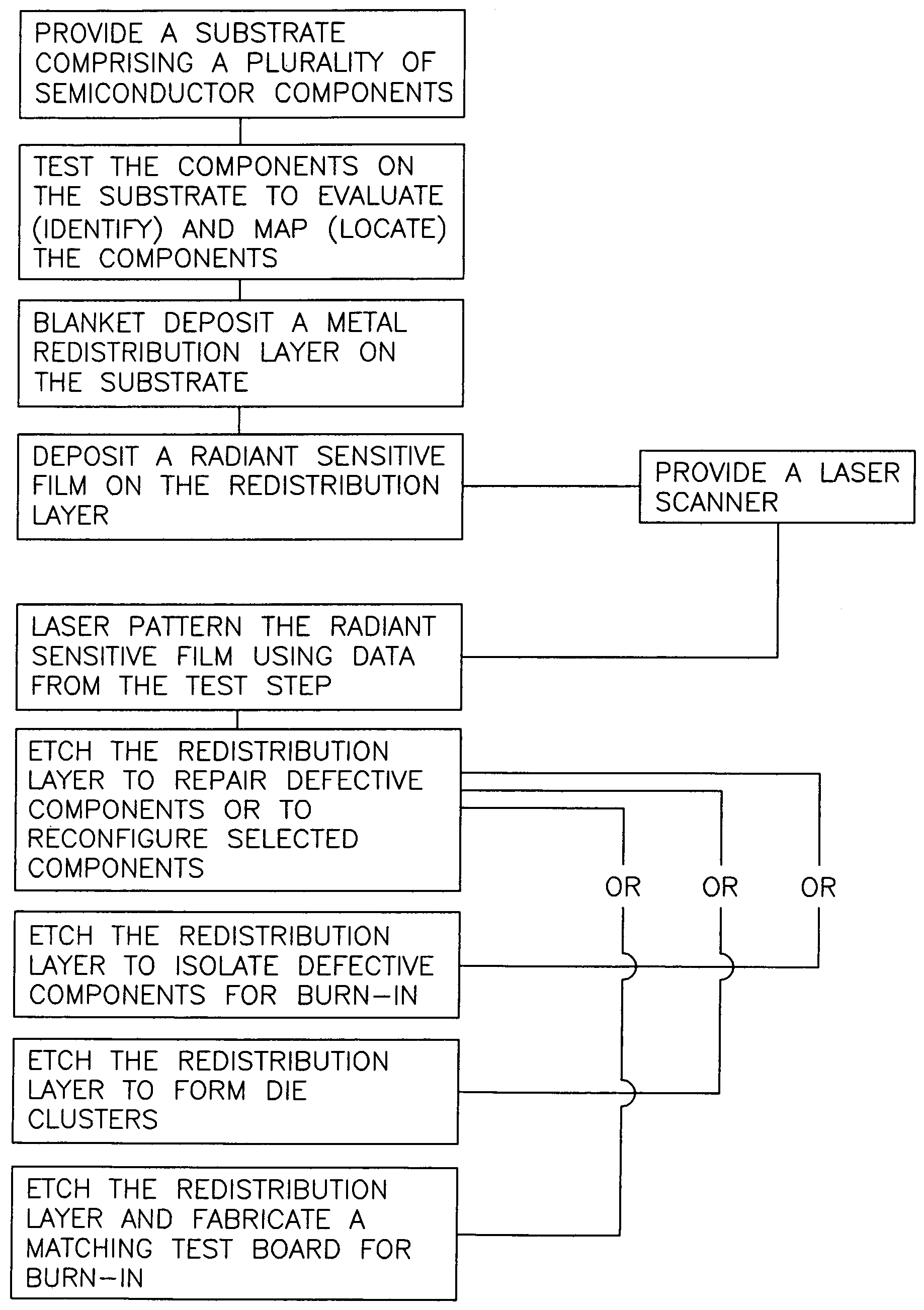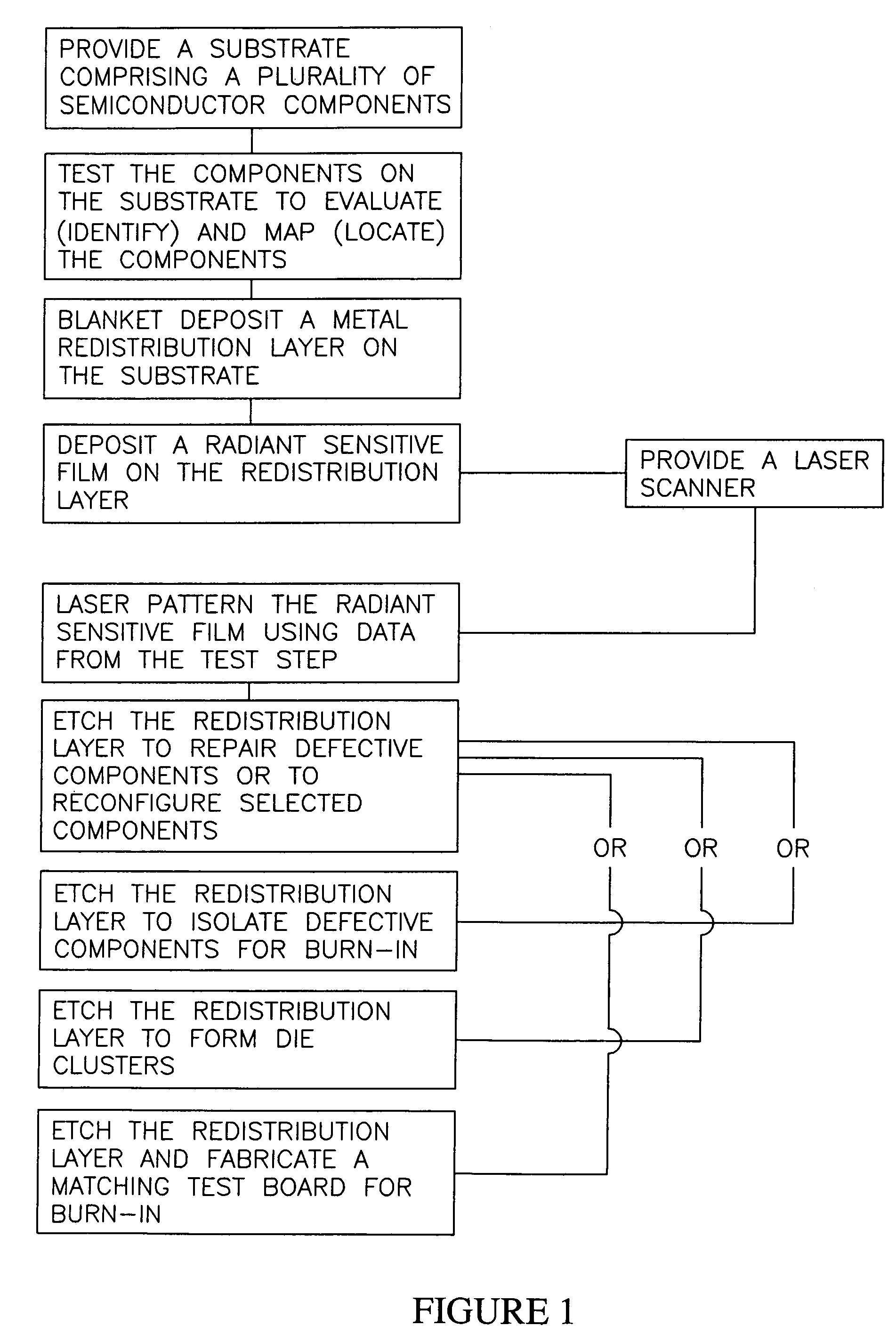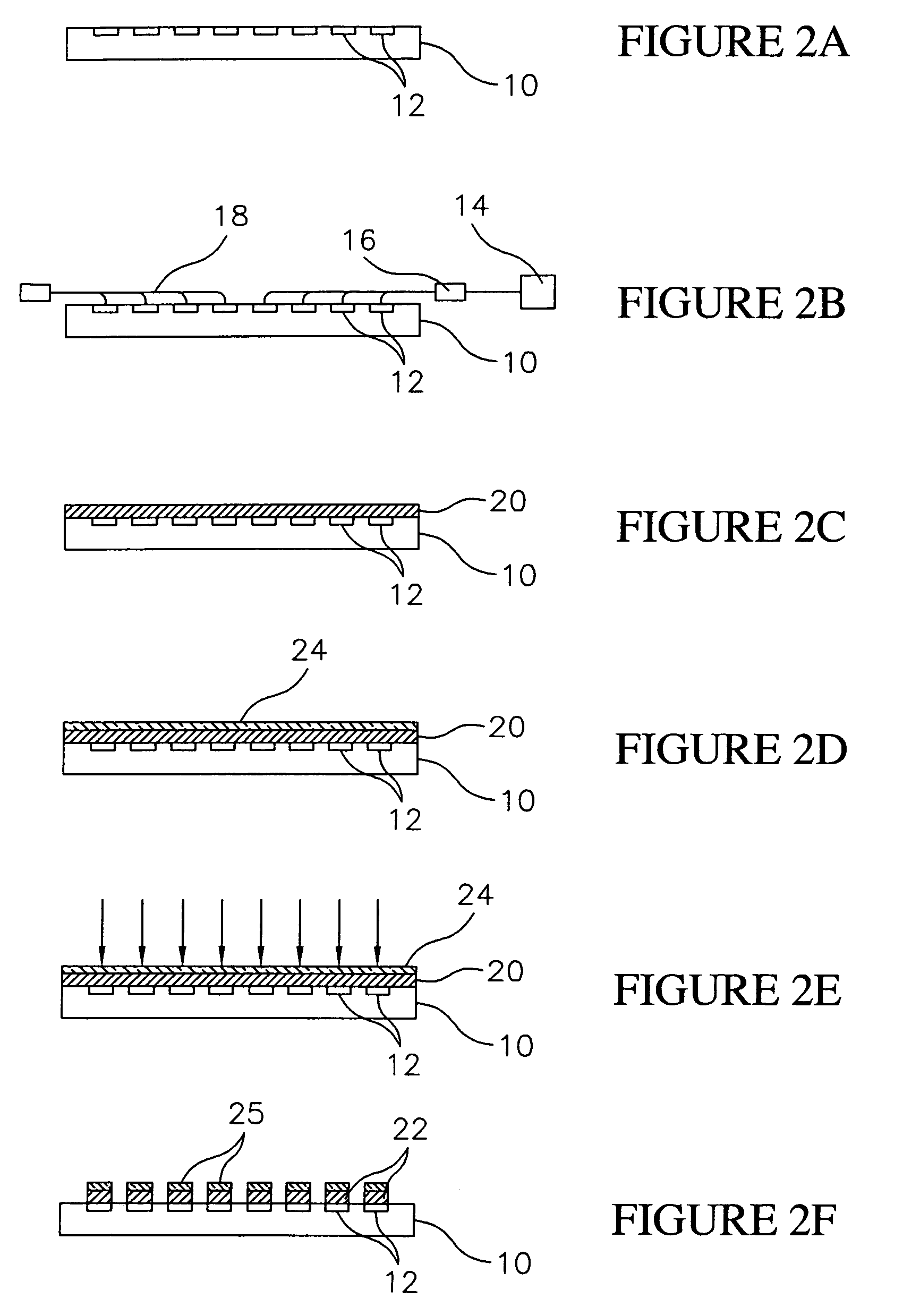Semiconductor test board having laser patterned conductors
a technology of semiconductors and test boards, applied in semiconductor/solid-state device testing/measurement, individual semiconductor device testing, instruments, etc., can solve problems such as component non-functionality, component defects, and components on the substrate that cannot be tested, and achieve the effect of avoiding the formation of a single array
- Summary
- Abstract
- Description
- Claims
- Application Information
AI Technical Summary
Benefits of technology
Problems solved by technology
Method used
Image
Examples
Embodiment Construction
[0029]Referring to FIG. 1, and to FIGS. 2A–2F, broad steps in a method for fabricating semiconductor components in accordance with the invention are illustrated. In the illustrative embodiment the components comprise semiconductor dice, or semiconductor packages (e.g., chip scale packages or minimally packaged dice).
[0030]Initially, as shown in FIG. 2A, a semiconductor substrate 10 containing a plurality of semiconductor components 12 is provided. For example, the substrate 10 can comprise a wafer, or a portion thereof, made of a conventional semiconductor material, such as silicon or gallium arsenide, on which semiconductor dice have been formed using well known processes, such as doping, CVD and etching. As another example, the substrate 10 can comprise a panel containing a plurality of semiconductor packages. In this case the substrate 10 can be made of an organic material, such as a glass filled resin, such as epoxy glass (FR-4), polyimide glass, or a cyanate-glass material. In ...
PUM
 Login to View More
Login to View More Abstract
Description
Claims
Application Information
 Login to View More
Login to View More - R&D
- Intellectual Property
- Life Sciences
- Materials
- Tech Scout
- Unparalleled Data Quality
- Higher Quality Content
- 60% Fewer Hallucinations
Browse by: Latest US Patents, China's latest patents, Technical Efficacy Thesaurus, Application Domain, Technology Topic, Popular Technical Reports.
© 2025 PatSnap. All rights reserved.Legal|Privacy policy|Modern Slavery Act Transparency Statement|Sitemap|About US| Contact US: help@patsnap.com



